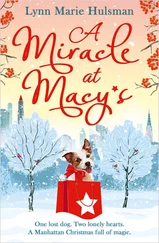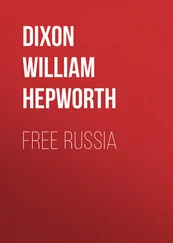Nikolai Nekrasov - Who Can Be Happy and Free in Russia?
Здесь есть возможность читать онлайн «Nikolai Nekrasov - Who Can Be Happy and Free in Russia?» весь текст электронной книги совершенно бесплатно (целиком полную версию без сокращений). В некоторых случаях можно слушать аудио, скачать через торрент в формате fb2 и присутствует краткое содержание. Год выпуска: 2005, Жанр: Поэзия, на английском языке. Описание произведения, (предисловие) а так же отзывы посетителей доступны на портале библиотеки ЛибКат.
- Название:Who Can Be Happy and Free in Russia?
- Автор:
- Жанр:
- Год:2005
- ISBN:нет данных
- Рейтинг книги:3 / 5. Голосов: 1
-
Избранное:Добавить в избранное
- Отзывы:
-
Ваша оценка:
- 60
- 1
- 2
- 3
- 4
- 5
Who Can Be Happy and Free in Russia?: краткое содержание, описание и аннотация
Предлагаем к чтению аннотацию, описание, краткое содержание или предисловие (зависит от того, что написал сам автор книги «Who Can Be Happy and Free in Russia?»). Если вы не нашли необходимую информацию о книге — напишите в комментариях, мы постараемся отыскать её.
Who Can Be Happy and Free in Russia? — читать онлайн бесплатно полную книгу (весь текст) целиком
Ниже представлен текст книги, разбитый по страницам. Система сохранения места последней прочитанной страницы, позволяет с удобством читать онлайн бесплатно книгу «Who Can Be Happy and Free in Russia?», без необходимости каждый раз заново искать на чём Вы остановились. Поставьте закладку, и сможете в любой момент перейти на страницу, на которой закончили чтение.
Интервал:
Закладка:
But you!—you have sprung
From the house of Yutiátin,
The Princes Yu-tiá-tin
You are! Go!… Go, leave me!
You pitiful puppies!'
The heirs were alarmed;
How to tide matters over 120
Until he should die?
For they are not small items,
The forests and lands
That belong to our father;
His money-bags are not
So light as to make it
A question of nothing
Whose shoulders shall bear them;
We know that our father
Has three 'private' daughters 130
In Petersburg living,
To Generals married,
So how do we know
That they may not inherit
His wealth?… The Pomyéshchick
Once more is prostrated,
His death is a question
Of time, and to make it
Run smoothly till then
An agreement was come to, 140
A plan to deceive him:
So one of the ladies
(The fair one, I fancy,
She used at that time
To attend the old master
And rub his left side
With a brush), well, she told him
That orders had come
From the Government lately
That peasants set free 150
Should return to their bondage.
And he quite believed it.
(You see, since his illness
The Prince had become
Like a child.) When he heard it
He cried with delight;
And the household was summoned
To prayer round the icons; [40] Holy images.
And Thanksgiving Service
Was held by his orders 160
In every small village,
And bells were set ringing.
And little by little
His strength returned partly.
And then as before
It was hunting and music,
The servants were caned
And the peasants were punished.
The heirs had, of course,
Set things right with the servants, 170
A good understanding
They came to, and one man
(You saw him go running
Just now with the napkin)
Did not need persuading—-
He so loved his Barin.
His name is Ipát,
And when we were made free
He refused to believe it;
'The great Prince Yutiátin 180
Be left without peasants!
What pranks are you playing?'
At last, when the 'Order
Of Freedom' was shown him,
Ipát said, 'Well, well,
Get you gone to your pleasures,
But I am the slave
Of the Princes Yutiátin!'
He cannot get over
The old Prince's kindness 190
To him, and he's told us
Some curious stories
Of things that had happened
To him in his childhood,
His youth and old age.
(You see, I had often
To go to the Prince
On some matter or other
Concerning the peasants,
And waited and waited 200
For hours in the kitchens,
And so I have heard them
A hundred times over.)
'When I was a young man
Our gracious young Prince
Spent his holidays sometimes
At home, and would dip me
(His meanest slave, mind you)
Right under the ice
In the depths of the Winter. 210
He did it in such
A remarkable way, too!
He first made two holes
In the ice of the river,
In one he would lower
Me down in a net—
Pull me up through the other!'
And when I began
To grow old, it would happen
That sometimes I drove 220
With the Prince in the Winter;
The snow would block up
Half the road, and we used
To drive five-in-a-file.
Then the fancy would strike him
(How whimsical, mark you!)
To set me astride
On the horse which was leading,
Me—last of his slaves!
Well, he dearly loved music, 230
And so he would throw me
A fiddle: 'Here! play now,
Ipát.' Then the driver
Would shout to the horses,
And urge them to gallop.
The snow would half-blind me,
My hands with the music
Were occupied both;
So what with the jolting,
The snow, and the fiddle, 240
Ipát, like a silly
Old noodle, would tumble.
Of course, if he landed
Right under the horses
The sledge must go over
His ribs,—who could help it?
But that was a trifle;
The cold was the worst thing,
It bites you, and you
Can do nothing against it! 250
The snow lay all round
On the vast empty desert,
I lay looking up
At the stars and confessing
My sins. But—my friends,
This is true as the Gospel—
I heard before long
How the sledge-bells came ringing,
Drew nearer and nearer:
The Prince had remembered, 260
And come back to fetch me!'
"(The tears began falling
And rolled down his face
At this part of the story.
Whenever he told it
He always would cry
Upon coming to this!)
'He covered me up
With some rugs, and he warmed me,
He lifted me up, 270
And he placed me beside him,
Me—last of his slaves—
Beside his Princely Person!
And so we came home.'"
They're amused at the story.
Old Vlásuchka, when
He has emptied his fourth cup,
Continues: "The heirs came
And called us together—
The peasants and servants; 280
They said, 'We're distressed
On account of our father.
These changes will kill him,
He cannot sustain them.
So humour his weakness:
Keep silent, and act still
As if all this trouble
Had never existed;
Give way to him, bow to him
Just as in old days. 290
For each stroke of barschin,
For all needless labour,
For every rough word
We will richly reward you.
He cannot live long now,
The doctors have told us
That two or three months
Is the most we may hope for.
Act kindly towards us,
And do as we ask you, 300
And we as the price
Of your silence will give you
The hayfields which lie
On the banks of the Volga.
Think well of our offer,
And let the posrédnik
Be sent for to witness
And settle the matter.'
"Then gathered the commune
To argue and clamour; 310
The thought of the hayfields
(In which we are sitting),
With promises boundless
And plenty of vodka,
Decided the question:
The commune would wait
For the death of the Barin.
"Then came the posrédnik,
And laughing, he said:
'It's a capital notion! 320
The hayfields are fine, too,
You lose nothing by it;
You just play the fool
And the Lord will forgive you.
You know, it's forbidden
To no one in Russia
To bow and be silent.'
"But I was against it:
I said to the peasants,
'For you it is easy, 330
But how about me?
Whatever may happen
The Elder must come
To accounts with the Barin,
And how can I answer
His babyish questions?
And how can I do
His nonsensical bidding?'
"'Just take off your hat
And bow low, and say nothing, 340
And then you walk out
And the thing's at an end.
The old man is ill,
He is weak and forgetful,
And nothing will stay
In his head for an instant.'
"Perhaps they were right;
To deceive an old madman
Is not very hard.
Интервал:
Закладка:
Похожие книги на «Who Can Be Happy and Free in Russia?»
Представляем Вашему вниманию похожие книги на «Who Can Be Happy and Free in Russia?» списком для выбора. Мы отобрали схожую по названию и смыслу литературу в надежде предоставить читателям больше вариантов отыскать новые, интересные, ещё непрочитанные произведения.
Обсуждение, отзывы о книге «Who Can Be Happy and Free in Russia?» и просто собственные мнения читателей. Оставьте ваши комментарии, напишите, что Вы думаете о произведении, его смысле или главных героях. Укажите что конкретно понравилось, а что нет, и почему Вы так считаете.











